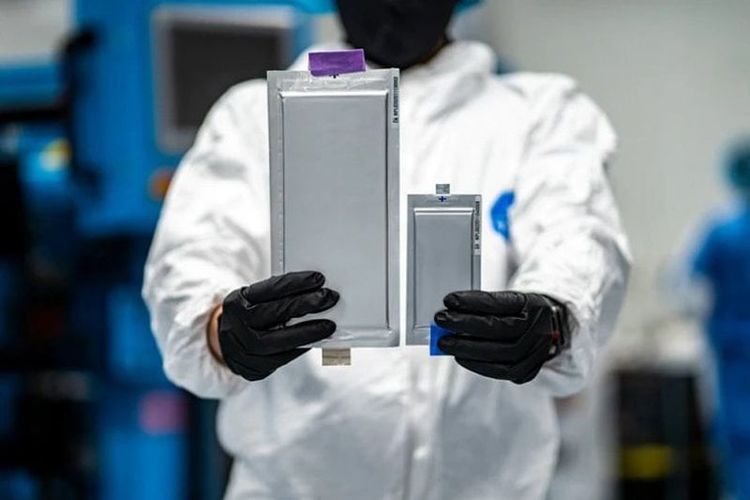Researchers at Harvard University have successfully tested a new solid-state battery that has a longer lifespan than conventional electric vehicle batteries and can be fully charged in just 10 minutes.
Scientists from the Harvard John A. Paulson School of Engineering and Applied Sciences (SEAS) have developed a solid-state battery that can be fully charged in just 10 minutes, with a lifespan of over 6,000 charging/discharging cycles.
This solid-state battery uses a lithium metal anode instead of graphite. Experts say that the change in material composition allows the battery’s anode to store ten times the energy of a graphite anode.
Furthermore, the new solid-state battery also incorporates tiny silicon particles, measuring in microns, to prevent the formation of dendrites on the lithium metal anode, thereby minimizing the risk of short circuits or fires.
Harvard researchers conducted tests on a sample of this solid-state battery, which is about the size of a postage stamp. The results were surprising as the battery maintained 80% of its capacity after 6,000 charge cycles, significantly higher than conventional lithium-ion batteries.
The breakthrough by the Harvard research team was their successful prevention of the formation of dendrites by using micron-sized silicon particles on the lithium metal anode to limit reactions on the surface without penetrating deeper. Lithium is encapsulated by the silicon particles, and as the plating and peeling process can occur quickly on a flat surface, the developed battery can be fully charged in about 10 minutes.
Prof. Xin Li, a material science expert at SEAS, said: “The use of lithium metal as an anode is a new breakthrough in battery technology, as it provides a tenfold increase in power over commonly used graphite anodes and can significantly increase the range of electric cars.”
The solid-state battery has a solid electrolyte, unlike conventional lithium-ion batteries that use liquid electrolytes. The solid-state battery has a higher energy density than conventional electric vehicle batteries, thereby increasing battery capacity while improving weight and volume.
Toyota is one of the automakers actively developing solid-state batteries, and the company recently announced its plans to commercialize them in a few years. These batteries will have a recharge time of about 10 minutes and a range of up to 1,200 km.
Written by Thai Son (Tuoitrethudo)
Reference: Carscoops
Top 10 Most Expensive Electric Cars in the World
The production of electric vehicles heavily relies on battery technology, which directly affects the value of the vehicle. Additionally, factors such as supply chain, assembly line, research, and development also play a role in making the proposed price of electric cars higher than those with internal combustion engines.






























.jpg)
.jpg)















